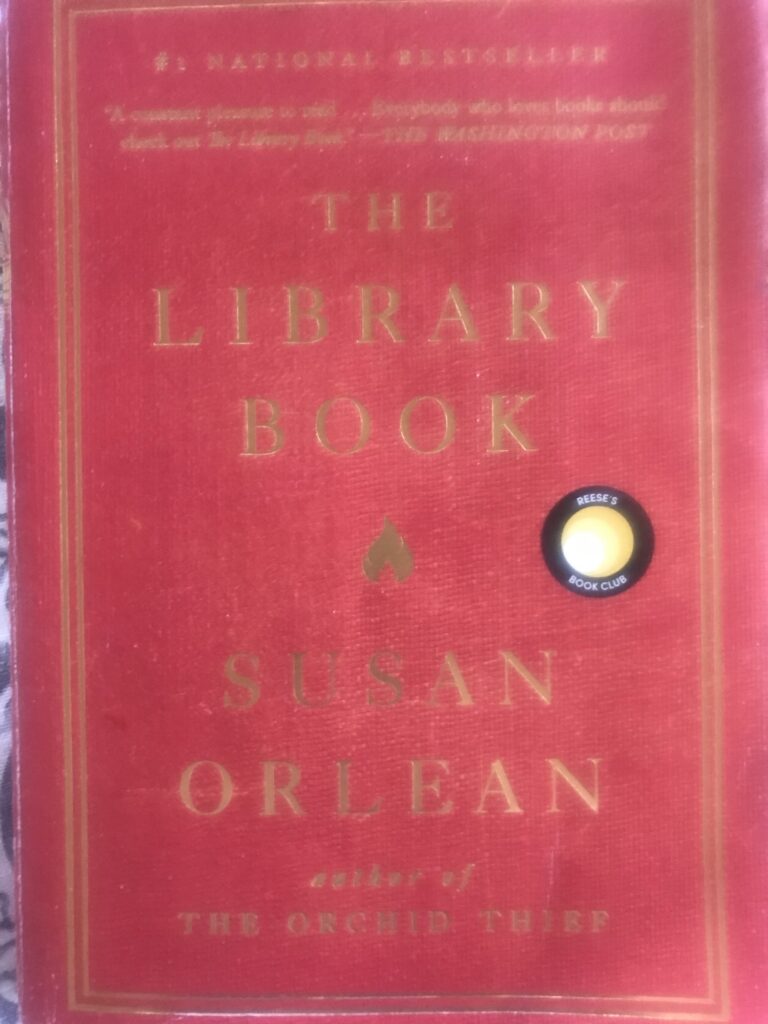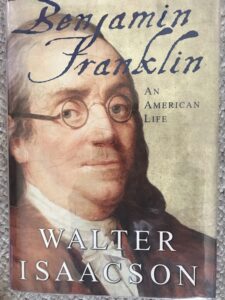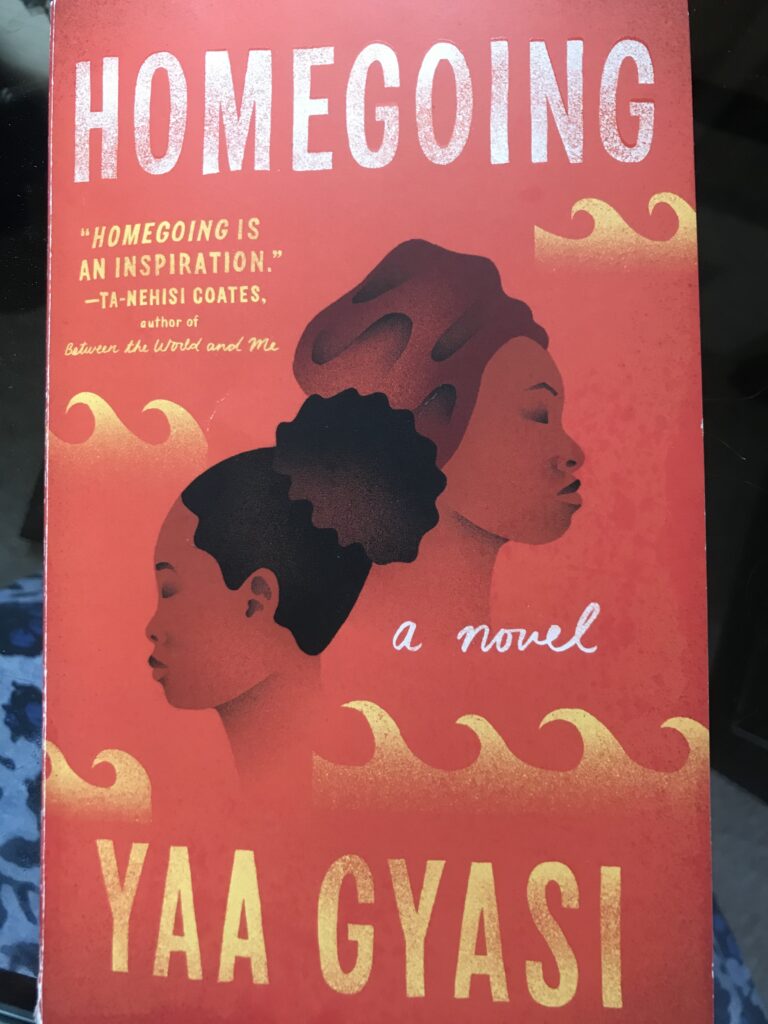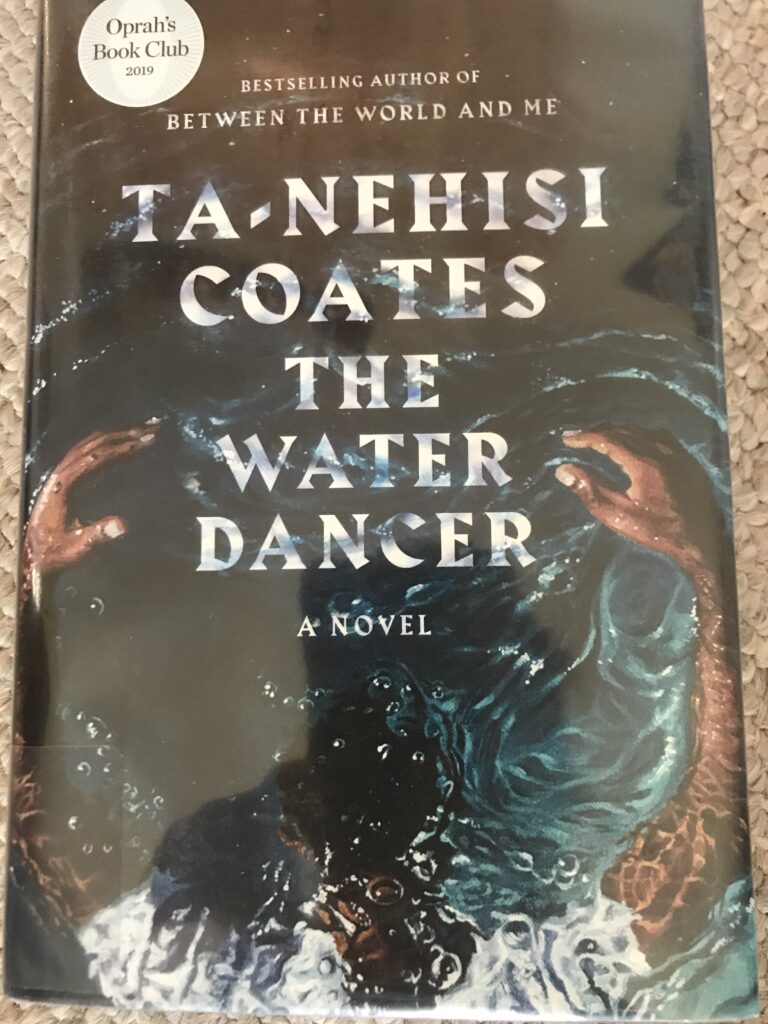
The Library Book by Susan Orleans
With Susan Orleans’ (The Orchid Thief) usual curiosity and penchant for diligent research, it’s not surprising that she could become an extraordinary sleuth investigating the mysterious and devastating fire that came near to destroying the Los Angeles Public Library in 1986. If you love books, reading, history and an expectedly entertaining story – this is for you. Out of its staid title, we meet extraordinary characters who one might say belong in fiction, but, all the better, they are real life in the flesh. Oh, and we learn a lot about combustion, how a book burns and the heroic work of firefighters.
I haven’t read “Between the World and Me,” winner of a 2015 National Book Award, but during a zoom meeting relating to Black Lives Matter, a friend texted me and said I should read “The Water Dancer.”
To read this debut novel is to embark on an adventure. It might be said of magical realism, but truly, the reality of this novel isn’t magical. Hiram Walker, the narrator, is enslaved to his father. Hiram’s enslaved mother has been sold leaving the young, inquisitive, sensitive and astute boy to live with a woman whose children have all been sold. Hiram separates his straddled world (his father occasionally gives him a glance) by categories: the Quality, the Tasked, and the Low.
He dreams of being the Quality, after all he is a part of the aristocratic blood along with being a part of the Tasked. Instead, he is made to serve Maynard, his half-brother who is a an arrogant dolt. Surely, Hiram thinks, he will be recognized for his knowledge (he was tutored along with Maynard) and his understanding of the plantation. It is not meant to be.
The novel provides a scope of the losing proposition of slavery and the tenacious pull it had on entitled families. There is a terror among the Virginia enslaved people to be sold down the Natchez Trace; life would be even worse there, if there is a qualitative aspect to human ownership. Hiram runs away. Reader, you must find out for yourself what unfolds. “The Water Dancer” is gripping and beautifully written. It is filled with ghosts who haunt us to this day.
Homecoming by Yaa Gyasi
Two Ashanti half-sisters by the same mother in late 18th venture Africa grow up to experience the world from vastly different perspectives. One marries a British slave trader the other is enslaved.
It reminded me of Thomas Jefferson. His wife, Martha and enslaved concubine, Sally Hemings were half sisters by the same father.
That said, Effi and Esi, the sisters of our Homecoming are followed through multiple generations in their respective locations. A Black experience redux as the novel covers complex periods of time in brief chapters giving us Cliff notes of the epoch. Rushing is the right word, but at times, it seems the easily way to write in historical shorthand is to stereotype.
Still, I enjoyed reading the book to its conclusion.

Lives well lived tend to be messy and difficult to categorize. Walter Isaacson tackles this in Benjamin Franklin, An American Life. This biography of the only signer of all four documents fundamental to the establishment of the United States (The Declaration of Independence, The Treaty of Alliance, Amity and Commerce with France, The Treaty of Peace between England, France and the United States and the Constitution of the United States) sorts through it all for us. Talk about a guy who was in the room when it happened! But Benjamin Franklin had a curiosity well beyond the public life he devoted himself to after retiring at age 42. He also harnessed electricity (not just via the famous key on a kite string) and invented bifocals, a catheter(!) and documented the Gulf Stream. He wrote voluminously (and we would probably have even more of his writing had his grandson cared for them better – many papers were discovered in a tailor shop in 1840 being used at patterns.) His family life was less than conventional (of the last 17 years of his marriage, 15 were spent apart from his wife, Deborah) and he died estranged from his only surviving son, William (who was illegitimate) because the son (Governor of New Jersey) had chosen to side with the British as the colonies declared their independence. But this is only the tip of the fascinating iceberg of Benjamin Franklin’s life. Very readable despite complicated diplomatic and administrative details leading up to the formation of our country, Walter Isaacson does the man justice.
Franklin’s wise commitment to compromise deftly lay out the warp and weft of battling colonies to weave the United States. We could use such a voice today.


